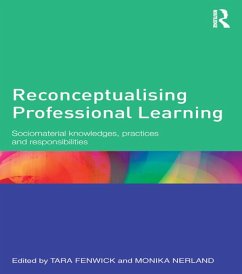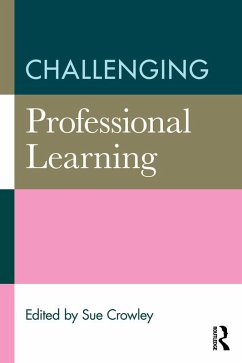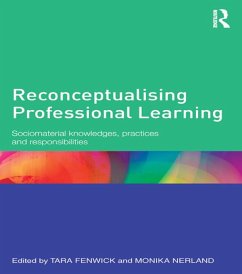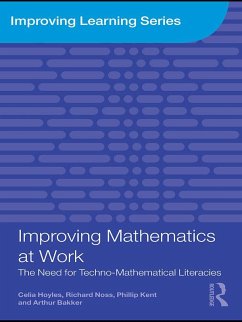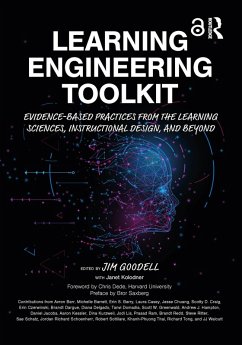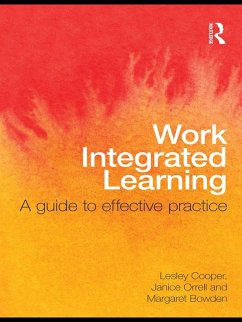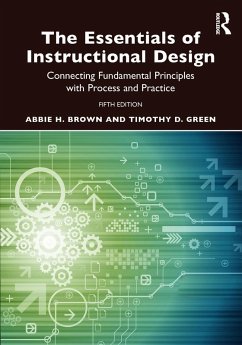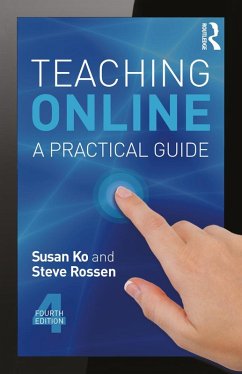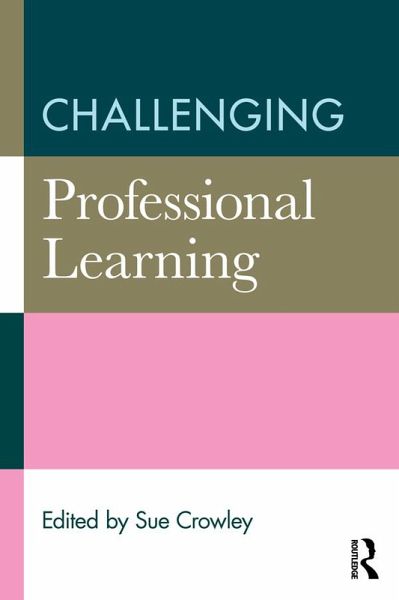
Challenging Professional Learning (eBook, PDF)
Versandkostenfrei!
Sofort per Download lieferbar
36,95 €
inkl. MwSt.
Weitere Ausgaben:

PAYBACK Punkte
18 °P sammeln!
Teachers and trainers are dual-professionals - they are required to have up-to-date industry skills and also skills in teaching and learning. The issue of professional identity, and the promotion of maintaining and building pedagogic expertise in relation to their vocational work, is therefore an extremely important one. This book argues that quality teaching and learning is very much dependent upon teachers and trainers undergoing continuing professional development (CPD), engaging actively in professional learning activities, generating professional learning communities and building their le...
Teachers and trainers are dual-professionals - they are required to have up-to-date industry skills and also skills in teaching and learning. The issue of professional identity, and the promotion of maintaining and building pedagogic expertise in relation to their vocational work, is therefore an extremely important one. This book argues that quality teaching and learning is very much dependent upon teachers and trainers undergoing continuing professional development (CPD), engaging actively in professional learning activities, generating professional learning communities and building their level of professionalism to meet increasing teaching standards. Unfortunately, CPD is battling a context of intensification of work, pressure of time and economic restrictions. The completion of CPD under such conditions can often become tokenistic and hitherto there has been very little research or evidence base for determining what approaches to CPD are most effective and efficient.
Challenging Professional Learning draws on a wealth of recent research and evidence on what ingredients are necessary for effective and efficient (crucial at a time of such fiscal constraints) professional learning. It also explores the wider implications of these findings and the concept of learning as a collective activity. It argues that real professionalism cannot be achieved in isolation but instead takes place in a context that has political, social and cultural influences.
The book brings together research from the Institute for Learning and practice around professional learning to link both individual and collective professional learning to organisational learning, leadership and the management of change whilst offering practical suggestions for improving these practices. It will be of great interest to teacher educators and their students at undergraduate and post-graduate levels, as well as anyone who works in higher education and with professional development.
Challenging Professional Learning draws on a wealth of recent research and evidence on what ingredients are necessary for effective and efficient (crucial at a time of such fiscal constraints) professional learning. It also explores the wider implications of these findings and the concept of learning as a collective activity. It argues that real professionalism cannot be achieved in isolation but instead takes place in a context that has political, social and cultural influences.
The book brings together research from the Institute for Learning and practice around professional learning to link both individual and collective professional learning to organisational learning, leadership and the management of change whilst offering practical suggestions for improving these practices. It will be of great interest to teacher educators and their students at undergraduate and post-graduate levels, as well as anyone who works in higher education and with professional development.
Dieser Download kann aus rechtlichen Gründen nur mit Rechnungsadresse in A, B, BG, CY, CZ, D, DK, EW, E, FIN, F, GR, HR, H, IRL, I, LT, L, LR, M, NL, PL, P, R, S, SLO, SK ausgeliefert werden.




